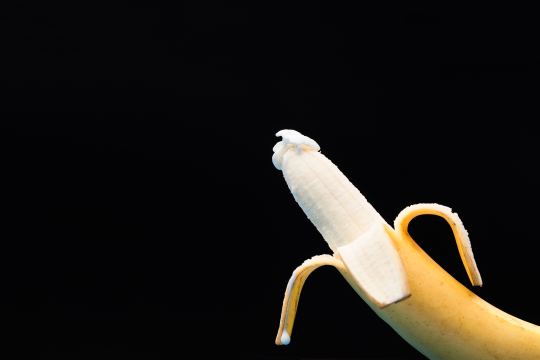Text
Reviving Hope: Ayurvedic Treatment for Infertility
Discover natural solutions and holistic approaches with Ayurvedic treatment for infertility. Restore balance to the body, address underlying issues, and enhance fertility with personalized care rooted in ancient wisdom.
0 notes
Text
Understanding Female Infertility Causes and Ayurvedic Treatment Options

In today's world, infertility has become a concerning issue for many couples striving to conceive. While there can be various factors contributing to infertility in women, understanding its causes is crucial for seeking appropriate treatment. In this article, we delve into the common causes of female infertility and explore Ayurvedic treatment options to address this condition effectively.
Hormonal Imbalance: Hormonal imbalances, such as irregular menstrual cycles or ovulation disorders, can significantly impact fertility. Conditions like polycystic ovary syndrome (PCOS) or thyroid disorders are common culprits.
Age-related Factors: As women age, their fertility naturally declines, with a notable decrease in ovarian reserve and egg quality. Advanced maternal age can pose challenges for conception and increase the risk of infertility.
Structural Issues: Structural abnormalities in the reproductive organs, such as blocked fallopian tubes, uterine fibroids, or endometriosis, can interfere with the fertilization process or implantation of the embryo.
Lifestyle Factors: Unhealthy lifestyle choices, including smoking, excessive alcohol consumption, poor diet, and lack of exercise, can adversely affect fertility. Stress and obesity are also known to impact reproductive health negatively.
Environmental Toxins: Exposure to environmental toxins, pollutants, pesticides, and chemicals in everyday products can disrupt hormonal balance and impair fertility.
Ayurvedic Treatment for Infertility in Women: Ayurveda, the ancient Indian system of medicine, offers a holistic approach to treating female infertility by addressing underlying imbalances in the body. Here are some Ayurvedic treatment modalities commonly used for infertility:
Herbal Remedies: Ayurvedic herbs like Ashwagandha, Shatavari, Gokshura, and Lodhra are known for their rejuvenating and fertility-enhancing properties. These herbs help regulate hormones, improve ovarian function, and enhance reproductive health.
Panchakarma Therapy: Panchakarma, a detoxification therapy in Ayurveda, aims to cleanse the body of accumulated toxins and restore balance. Specific therapies like Virechana (purging) and Basti (enema) help eliminate toxins from the reproductive organs and improve fertility.
Diet and Lifestyle Modifications: Ayurveda emphasizes the importance of a balanced diet and healthy lifestyle habits for optimal reproductive health. Ayurvedic practitioners may recommend dietary changes, stress-reduction techniques, and yoga asanas tailored to support fertility.
Stress Management: Stress is a significant contributor to infertility. Ayurvedic practices like meditation, pranayama (breathing exercises), and Ayurvedic massages promote relaxation, reduce stress levels, and support overall well-being.
Consultation with an Ayurvedic Practitioner: For personalized guidance and treatment, it's essential to consult with a qualified Ayurvedic practitioner who can assess your individual constitution, diagnose imbalances, and recommend a tailored treatment plan.
In conclusion, understanding the causes of female infertility and exploring Ayurvedic treatment options can offer hope and healing to couples struggling to conceive. By addressing imbalances in the body and nurturing overall health and well-being, Ayurveda provides a holistic approach to fertility restoration.
#causes of infertility#gynecologist#pregnancy loss#male fertility doctor#fertility specialist#ayurvedic treatment for premature ejaculation#couple#relationship#peyronie's disease#ayurvedic treatment for early ejaculation#health & fitness#infertility#fertility#ivf specialist
0 notes
Text
Unlocking the Secrets of Fertility in Women
Delve into the intricate world of female fertility, where science, biology, and the wonders of the human body converge. From understanding the menstrual cycle and ovulation to exploring factors that influence fertility, this article sheds light on the complexities of fertility in women. Gain insights into optimizing reproductive health, navigating fertility challenges, and embarking on the journey towards conception and motherhood.
0 notes
Text
Addressing Female Fertility Problems: A Holistic Approach

Female infertility is a complex issue that affects numerous women worldwide, causing distress and frustration for those longing to conceive. While modern medicine offers various treatment options, Ayurveda, the ancient Indian system of medicine, provides holistic solutions that address the root causes of fertility problems in women.
Understanding Female Fertility Problems:
Female infertility can stem from various factors, including hormonal imbalances, ovulation disorders, blocked fallopian tubes, uterine abnormalities, and age-related decline in egg quality. Stress, unhealthy lifestyle habits, and underlying health conditions can further exacerbate these issues, making conception challenging for some women.
Ayurvedic Perspective on Female Infertility:
Ayurveda views female infertility as a manifestation of imbalances in the body's doshas (vata, pitta, and kapha) and dhatus (tissues), particularly affecting the reproductive system. According to Ayurvedic principles, factors such as poor digestion, toxins accumulation, and disturbed hormonal balance can hinder fertility.
Ayurvedic Treatment for Female Infertility:
Ayurvedic treatment for female infertility focuses on restoring balance to the doshas, rejuvenating the reproductive organs, and promoting overall well-being. Some key Ayurvedic approaches to treating female infertility include:
Herbal Remedies: Ayurvedic herbs like Shatavari, Ashoka, Lodhra, and Gokshura are known for their ability to balance hormones, improve ovarian function, and enhance fertility.
Dietary Modifications: A fertility-friendly diet rich in fresh fruits, vegetables, whole grains, lean proteins, and healthy fats supports reproductive health and nourishes the body. Avoiding processed foods, caffeine, and alcohol can also be beneficial.
Lifestyle Changes: Adopting a healthy lifestyle plays a crucial role in enhancing fertility. Practices such as regular exercise, yoga, meditation, adequate sleep, and stress management help reduce stress levels and promote hormonal balance.
Panchakarma Therapy: Panchakarma, a detoxification therapy in Ayurveda, helps eliminate toxins from the body and restore doshic balance. Treatments like Basti (enema) and Uttar Basti (intrauterine infusion) are particularly beneficial for addressing female infertility.
Conclusion:
In conclusion, female infertility is a multifaceted issue that requires a holistic approach for effective management. Ayurveda offers a comprehensive framework for treating female infertility by addressing underlying imbalances in the body and promoting reproductive health naturally. By incorporating Ayurvedic principles, herbal remedies, dietary modifications, and lifestyle changes, women can optimize their fertility and increase their chances of conceiving.
0 notes
Text
Unraveling the Enigma: Exploring the Causes of Infertility in Men and Women

Infertility, a condition that affects millions of couples worldwide, can be a source of immense emotional distress and frustration. While there are numerous factors that can contribute to infertility, understanding its underlying causes is essential for effective diagnosis and treatment. In this article, we delve into the multifaceted causes of infertility in both men and women, shedding light on the complex interplay of biological, environmental, and lifestyle factors.
Causes of Infertility in Women
Ovulation Disorders: Irregular or absent ovulation can hinder conception. Conditions such as polycystic ovary syndrome (PCOS), thyroid disorders, and premature ovarian insufficiency (POI) can disrupt the ovulation process.
Fallopian Tube Damage: Blockages or damage to the fallopian tubes can prevent the egg from reaching the uterus for fertilization. Previous pelvic infections, endometriosis, or surgery may contribute to fallopian tube issues.
Uterine Abnormalities: Structural abnormalities in the uterus, such as fibroids or polyps, can interfere with embryo implantation and development, leading to infertility.
Age-related Factors: As women age, the quantity and quality of their eggs decline, making conception more challenging. Advanced maternal age is a significant risk factor for infertility.
Causes of Infertility in Men
Low Sperm Count or Quality: Issues with sperm production, motility, or morphology can impair fertility. Factors such as hormonal imbalances, genetic conditions, and lifestyle choices (e.g., smoking, excessive alcohol consumption) can affect sperm health.
Varicocele: A varicocele, an enlargement of the veins within the scrotum, can lead to decreased sperm production and quality. It is a common reversible cause of male infertility.
Testicular Factors: Conditions such as undescended testicles, testicular trauma, or infections can impact sperm production and function, contributing to infertility.
Ejaculatory Disorders: Disorders affecting the ejaculation process, such as retrograde ejaculation or erectile dysfunction, can hinder the delivery of sperm during intercourse.
Seeking Help from a Male Fertility Doctor
For couples struggling with infertility, consulting a male fertility doctor, also known as a reproductive urologist or andrologist, can provide valuable insights and guidance. These specialists are trained to evaluate and treat male infertility issues, offering diagnostic tests, fertility evaluations, and personalized treatment plans to address underlying causes and improve reproductive outcomes.
Conclusion
Infertility can stem from a myriad of factors affecting both men and women. By understanding the potential causes of infertility and seeking specialized care from a male fertility doctor specialist, couples can embark on a journey towards achieving their dream of parenthood. With advancements in reproductive medicine and personalized treatment approaches, there is hope for overcoming infertility challenges and building a family.
2 notes
·
View notes
Text
Understanding the Causes of Peyronie's Disease and Exploring Ayurvedic Treatment Options

Peyronie's Disease is a condition that affects the penis, causing curvature, pain, and potential complications with sexual function. While the exact cause of Peyronie's Disease remains elusive, several factors are believed to contribute to its onset, and understanding these can be crucial in managing and treating the condition.
What is Peyronie's Disease?
Peyronie's Disease is characterized by the formation of fibrous scar tissue, or plaque, within the penis. This plaque can cause the penis to bend or curve during erections, leading to discomfort, pain, and potential difficulties with sexual intercourse. While the precise cause of Peyronie's Disease is unknown, several factors are thought to play a role in its development.
Potential Causes of Peyronie's Disease
Trauma or Injury: One of the most commonly cited factors in the development of Peyronie's Disease is trauma or injury to the penis. This can occur during sexual activity, accidents, or other forms of physical trauma.
Genetics: Some research suggests that genetics may play a role in predisposing individuals to Peyronie's Disease. Certain genetic factors may influence the development of scar tissue or the body's response to injury.
Inflammation: Inflammation is believed to be a key component in the formation of Peyronie's plaque. Chronic inflammation within the penis may lead to the accumulation of scar tissue over time.
Connective Tissue Disorders: Conditions that affect connective tissue, such as Dupuytren's Contracture or systemic conditions like diabetes, may increase the risk of Peyronie's Disease.
Ayurvedic Treatment for Peyronie's Disease
Ayurveda, the ancient Indian system of medicine, offers holistic and natural approaches to managing Peyronie's Disease. Ayurvedic treatment focuses on addressing the underlying imbalances in the body, reducing inflammation, and promoting overall health and well-being. Some Ayurvedic remedies that may be beneficial for Peyronie's Disease include:
Herbal Supplements: Ayurvedic herbs such as Ashwagandha, Shilajit, Gokshura, and Guggulu are known for their anti-inflammatory and rejuvenating properties, which may help reduce inflammation and promote tissue healing.
Dietary Modifications: Ayurveda emphasizes the importance of a balanced diet tailored to individual constitution (dosha). Foods that are nourishing, anti-inflammatory, and supportive of sexual health may be recommended.
Lifestyle Recommendations: Ayurvedic lifestyle practices such as regular exercise, stress management techniques, and adequate sleep can also play a crucial role in managing Peyronie's Disease and promoting overall well-being.
Conclusion
While the exact causes of Peyronie's Disease remain uncertain, understanding the potential contributing factors can help individuals make informed choices about their health and treatment options. Ayurvedic treatment for Peyronie's Disease offers a holistic and natural approach to managing the condition, focusing on reducing inflammation, promoting tissue healing, and restoring overall balance to the body. By incorporating Ayurvedic remedies, dietary modifications, and lifestyle recommendations into their routine, individuals with Peyronie's Disease can take proactive steps toward improved sexual health and well-being. As always, it's essential to consult with a qualified healthcare practitioner before starting any new treatment regimen.
0 notes
Text
Unraveling the Enigma of Peyronie's Disease: Causes and Ayurvedic Treatment in India

Peyronie's Disease, a condition characterized by the formation of fibrous scar tissue inside the penis, causing curvature during erections, remains a perplexing concern for many individuals and healthcare professionals alike. While its exact cause eludes definitive explanation, several factors are believed to contribute to its onset, creating a complex web of potential triggers and risk factors that warrant thorough investigation and understanding.
Trauma: One of the leading hypotheses proposes trauma or injury to the penis as a trigger for Peyronie's Disease. Even minor incidents during sexual activity or daily life can result in microtrauma, leading to inflammation and subsequent scar tissue formation.
Genetics: Emerging evidence suggests a genetic predisposition to Peyronie's Disease. Individuals with a family history of the condition may be at higher risk, indicating a potential hereditary component in its development.
Connective Tissue Disorders: Certain connective tissue disorders, such as Dupuytren's contracture, are associated with an increased incidence of Peyronie's Disease. These conditions involve abnormal collagen production, which may contribute to the formation of penile plaques.
Autoimmune Response: In some cases, Peyronie's Disease may stem from an autoimmune reaction, where the body's immune system mistakenly targets healthy penile tissue, leading to inflammation and scarring.
Vascular Factors: Disruptions in penile blood flow and vascular health have also been implicated in Peyronie's Disease. Conditions like hypertension, diabetes, and atherosclerosis can compromise blood circulation, potentially exacerbating tissue damage and scar formation.
Age: While Peyronie's Disease can affect men of all ages, it tends to be more prevalent in older individuals. Age-related changes in penile tissue structure and function may contribute to increased susceptibility to the condition.
Ayurvedic Treatment for Peyronie's Disease in India: In India, Ayurveda offers a holistic approach to managing Peyronie's Disease. Ayurvedic treatments focus on restoring balance to the body and addressing underlying imbalances that contribute to the condition. Herbal remedies, dietary modifications, and lifestyle interventions are tailored to individual needs, aiming to alleviate symptoms, improve penile function, and promote overall well-being. With its emphasis on natural healing and personalized care, Ayurveda provides a promising avenue for individuals seeking alternative therapies for Peyronie's Disease.
In conclusion, while the precise cause of Peyronie's Disease remains elusive, a multifactorial interplay of genetic, anatomical, and environmental factors likely contributes to its development. Understanding these underlying mechanisms is crucial for advancing treatment strategies and providing holistic care for individuals affected by this challenging condition. With the integration of Ayurvedic principles and practices, individuals in India and beyond can explore comprehensive approaches to managing Peyronie's Disease and reclaiming their penile health and vitality.
0 notes
Text
Ayurvedic Treatment For Erectile Dysfunction: Restoring Vitality Naturally
Discover the transformative power of Ayurveda in addressing erectile dysfunction. Explore natural remedies, herbs, and therapies tailored to enhance male sexual health, rejuvenate vitality, and restore confidence. Unlock the secrets of Ayurvedic treatment for erectile dysfunction and embark on a journey towards lasting intimacy and fulfillment.
0 notes
Text
Understanding Dhatu Rog Symptoms: Signs of Male Sexual Disorders
Learn about the symptoms of Dhatu Rog, a common male sexual disorder characterized by various physical and psychological manifestations. Explore the telltale signs, including fatigue, weakness, anxiety, and sexual dysfunction, that may indicate the presence of this condition. Gain insights into recognizing and addressing Dhatu Rog symptoms for optimal sexual health and well-being.
0 notes
Text
Understanding Low Semen Volume: Causes and Ayurvedic Treatment
Low semen volume, often a concern for individuals and couples trying to conceive, can have various underlying causes. Explore the factors contributing to low semen volume and discover effective Ayurvedic treatments for low sperm count in India. Learn how Ayurveda offers holistic approaches to address this issue, promoting overall reproductive health and enhancing fertility naturally.
0 notes
Text
Finding Lasting Solutions: Ayurvedic Treatment for Premature Ejaculation

Struggling with premature ejaculation can be a challenging and distressing experience for many men. The frustration and embarrassment that often accompany this condition can have a significant impact on both personal relationships and self-confidence. However, there is hope. Ayurveda, the ancient Indian system of medicine, offers holistic and effective solutions for premature ejaculation, providing relief and restoring harmony to intimate relationships.
Premature ejaculation, characterized by the inability to control ejaculation and reaching orgasm too quickly during sexual activity, affects men of all ages and backgrounds. While occasional instances of premature ejaculation are common and often nothing to worry about, persistent issues can cause significant distress and require intervention.
Ayurvedic treatment for premature ejaculation takes a comprehensive approach, addressing the underlying imbalances in the body and mind that contribute to the condition. Unlike quick-fix solutions that merely mask symptoms, Ayurveda seeks to restore balance and vitality to the entire being, promoting long-term health and wellness.
Here's a closer look at some of the Ayurvedic approaches to addressing premature ejaculation:
Herbal Remedies: Ayurvedic herbs have been used for centuries to promote sexual health and vitality. Herbs like Ashwagandha, Shilajit, Safed Musli, and Gokshura are known for their rejuvenating and aphrodisiac properties, helping to strengthen reproductive tissues, enhance stamina, and improve sexual function.
Dietary Modifications: Ayurveda emphasizes the importance of diet in maintaining overall health and balance. Ayurvedic practitioners may recommend dietary modifications to support reproductive health, such as incorporating foods that are nourishing, easy to digest, and promote vitality. Foods like almonds, dates, ghee, and sesame seeds are believed to be beneficial for sexual health and vigor.
Lifestyle Adjustments: Certain lifestyle factors can contribute to premature ejaculation, such as stress, anxiety, poor sleep habits, and excessive alcohol or drug use. Ayurvedic treatment emphasizes the importance of lifestyle adjustments to reduce stress, promote relaxation, and cultivate a healthy lifestyle conducive to sexual wellness.
Therapeutic Practices: Ayurveda offers various therapeutic practices to promote sexual health and balance, such as meditation, yoga, pranayama (breathwork), and Abhyanga (Ayurvedic oil massage). These practices help calm the mind, balance the doshas, and enhance overall well-being, supporting healthy sexual function.
In addition to these Ayurvedic interventions, seeking guidance from a qualified Ayurvedic practitioner is essential for personalized assessment and treatment planning. By addressing the root cause of premature ejaculation and promoting holistic well-being, Ayurvedic treatment offers hope and lasting solutions for men seeking relief from this common yet challenging condition.
In India, Ayurvedic treatment for premature ejaculation is widely available, with experienced practitioners offering personalized care and guidance to individuals seeking support for their sexual health concerns. Whether you're dealing with occasional episodes of premature ejaculation or persistent issues affecting your quality of life, Ayurveda offers a natural and holistic approach to restoring balance and vitality to your intimate relationships.
In conclusion, premature ejaculation can have a significant impact on a man's emotional well-being and intimate relationships. However, with the holistic approach of Ayurvedic treatment, there is hope for lasting solutions. By addressing the root cause of the condition and promoting overall health and vitality, Ayurveda empowers men to reclaim control over their sexual health and enjoy fulfilling and satisfying intimate experiences.
#ayurvedic treatment for early ejaculation#ayurvedic treatment for premature ejaculation#effective solutions for premature ejaculation
0 notes
Text
Lasting Intimacy: Ayurvedic Medicine for Premature Ejaculation Relief
Discover the natural path to prolonged pleasure and satisfaction with Ayurvedic medicine for premature ejaculation. Explore time-tested herbal formulations and holistic approaches rooted in Ayurveda to address the underlying factors causing premature climax. Our guide empowers you with insights into lifestyle changes and ancient remedies that enhance stamina, improve sexual well-being, and restore balance to your intimate life. Embrace the holistic wisdom of Ayurveda to achieve lasting results and enrich your connection with your partner.
0 notes
Text
Unlocking Natural Solutions: Ayurvedic Medicine for Premature Ejaculation

Premature Ejaculation (PE) is a common concern affecting men and impacting their sexual well-being. While modern medicine offers solutions, Ayurveda, the ancient holistic system of healing, provides a natural and comprehensive approach to address the root causes of premature ejaculation. In this article, we explore Ayurvedic medicine for premature ejaculation, shedding light on time-tested remedies that aim to restore balance and enhance overall sexual health.
Understanding Premature Ejaculation: Premature Ejaculation is characterized by the inability to control ejaculation, leading to sexual dissatisfaction and frustration. Ayurveda attributes PE to an imbalance in the doshas, particularly Vata and Pitta, affecting the Shukra Dhatu (reproductive tissue).
Ayurvedic Perspective on Premature Ejaculation: Ayurveda views sexual health as an integral part of overall well-being. Premature Ejaculation is often linked to factors such as increased stress, anxiety, and lifestyle imbalances. Ayurvedic treatments focus on harmonizing the doshas, strengthening the reproductive system, and promoting a healthy mind-body connection.
Ayurvedic Medicines for Premature Ejaculation:
Ashwagandha (Withania somnifera): Known for its adaptogenic properties, Ashwagandha helps alleviate stress and anxiety, contributing to improved sexual stamina.
Shilajit: A powerful Ayurvedic resin, Shilajit is renowned for its rejuvenating properties. It enhances overall vitality and supports reproductive health.
Safed Musli (Chlorophytum borivilianum): Safed Musli is an aphrodisiac herb that aids in enhancing sexual performance, addressing issues like premature ejaculation.
Gokshura (Tribulus terrestris): Gokshura is known for its benefits in improving sexual function and addressing issues related to premature ejaculation.
Akarkara (Anacyclus pyrethrum): Akarkara is used in Ayurveda to improve sexual vigor and stamina, offering support in cases of premature ejaculation.
Dietary Recommendations: Ayurvedic dietary guidelines for premature ejaculation involve a balanced diet that supports reproductive health. This includes nutrient-rich foods, whole grains, and a variety of fruits and vegetables.
Lifestyle Modifications: Ayurveda emphasizes the importance of a balanced lifestyle to promote sexual health. Stress management techniques, regular exercise, and adequate sleep play a crucial role in addressing the underlying causes of premature ejaculation.
Conclusion
Ayurvedic medicine for premature ejaculation offers a holistic approach that aims to enhance overall sexual health. By addressing the root causes and promoting balance in the body, these natural remedies provide a sustainable and effective solution. As with any health condition, it is advisable to consult with a qualified Ayurvedic practitioner for personalized guidance and a tailored treatment plan. Embrace the wisdom of Ayurveda to experience a fulfilling and harmonious journey towards improved sexual well-being.
#Ayurvedic Treatment For Premature Ejaculation#Premature Ejaculation#ayurvedic medicine for pre ejaculation#ayurvedic medicine for premature ejection#ayurvedic treatment for early ejaculation#best ayurvedic medicine for pe and ed
0 notes
Text
Nurturing Feminine Vitality: Ayurvedic Insights on Low Libido in Women

Low libido in women, a common concern affecting both physical and emotional well-being, can be approached with the wisdom of Ayurveda. This ancient healing system provides holistic insights and time-tested Ayurvedic treatments to restore balance and vitality to a woman's intimate health.
Understanding Low Libido in Women: Low libido, often linked to various factors such as stress, hormonal imbalances, and lifestyle, can disrupt the delicate dance of intimate connection. Ayurveda views libido as a manifestation of overall well-being, emphasizing the importance of a harmonious balance in the doshas (Vata, Pitta, Kapha), Agni (digestive fire), and Ojas (vital essence).
Ayurvedic Perspective on Female Vitality: Ayurveda recognizes the interconnectedness of physical, mental, and emotional aspects in women's health. A disturbance in any of these realms can impact libido. Ayurvedic treatments for low sex drive focus on restoring balance through dietary adjustments, lifestyle changes, and herbal remedies.
Balancing Doshas for Harmonious Libido:
Vata Imbalance: Addressed through nourishing and grounding practices, including warm, moist foods, and calming herbs like Ashwagandha.
Pitta Imbalance: Cooling and soothing measures, incorporating a diet of sweet and bitter foods, along with herbs like Shatavari, help alleviate excessive heat.
Kapha Imbalance: Encouraging warmth and stimulation through a light, invigorating diet and herbs like ginger can help counteract excess Kapha.
Ayurvedic Herbs for Female Vitality:
Shatavari: Known for its rejuvenating properties, Shatavari is a renowned herb for female reproductive health, promoting hormonal balance.
Ashoka: Traditionally used to support menstrual health, Ashoka aids in maintaining hormonal harmony.
Gokshura: Recognized for its aphrodisiac properties, Gokshura helps enhance libido and supports reproductive functions.
Lifestyle Practices for Enhanced Libido:
Yoga and Pranayama: Gentle yoga poses and breathwork can enhance blood flow, reduce stress, and cultivate a sense of overall well-being.
Stress Management: Ayurveda emphasizes stress reduction through practices like meditation, promoting mental and emotional balance.
Adequate Sleep: Prioritizing sufficient and restful sleep contributes to hormonal balance and supports vitality.
Conclusion
Ayurvedic treatment for low sex drive in women is a holistic journey that encompasses nourishing the body, calming the mind, and nurturing the spirit. Embracing the wisdom of Ayurveda, women can unlock the secrets to restoring their intimate vitality, fostering a harmonious balance in every facet of their lives. Always consult with a qualified Ayurvedic practitioner for personalized guidance and a tailored treatment plan.
0 notes
Text
All You Need to Know About Vaginal Discharge Treatment
Vaginal discharge is a common issue that women face at some point in their lives. It is a fluid that is secreted from the vagina and helps to keep it clean and healthy. However, when there is an excessive amount of discharge, it can indicate an underlying condition that requires treatment. In this blog post, we will discuss the causes, symptoms, and treatment options available for vaginal discharge.
Causes of Vaginal Discharge:
There are many factors that can cause vaginal discharge, including:
Bacterial vaginosis: This is a bacterial infection that causes an increase in vaginal discharge and a foul odor.
Yeast infection: A yeast infection is caused by an overgrowth of yeast in the vagina, leading to discharge that is thick and white.
Trichomoniasis: This is a sexually transmitted infection that causes a yellow or green discharge with a foul odor.
Menopause: As women age, their hormone levels change, leading to a decrease in vaginal lubrication and an increase in vaginal dryness and discharge.
Symptoms of Vaginal Discharge:
The symptoms of vaginal discharge vary depending on the underlying cause. Some of the most common symptoms include:
A foul-smelling discharge
Itching and irritation around the vagina
Pain during sexual intercourse
Pain or burning sensation during urination
Redness and swelling around the vagina

Treatment for Vaginal Discharge:
The treatment for vaginal discharge depends on the underlying cause. Some of the most common treatment options include:
Antibiotics: Antibiotics are often prescribed to treat bacterial vaginosis and other bacterial infections.
Antifungal medications: Antifungal medications are used to treat yeast infections.
Antiprotozoal medications: Antiprotozoal medications are used to treat trichomoniasis.
Hormone therapy: Hormone therapy can be used to treat menopause-related vaginal dryness and discharge.
Lifestyle changes: Making lifestyle changes such as wearing cotton underwear, avoiding douching, and practicing safe sex can help reduce the risk of vaginal discharge.
In conclusion, vaginal discharge is a common issue that can be caused by many factors. It is important to seek medical attention if you are experiencing an excessive amount of discharge or any other symptoms. By understanding the causes, symptoms, and treatment options available, you can take control of your vaginal health and live a happy, healthy life.
#menopause problems#irregular periods#hormone imbalance#hormone replacement#vaginal bleeding#vaginal discharge#blood in urine#hematuria#pelvic pain#weight loss#stomach bloating#lower back pain#weakness in woman#back pain#leg pain#pap smear#biopsy#surgery#radiation therapy#chemotherapy#hysterectomy#Vaginal discharge#beauty#exercise#health & fitness#white discharge#vaginal health#vaginal hygiene#vaginal penetration
0 notes
Text
The Truth About Sex During Pregnancy: Debunking Myths and Understanding the Benefits
Pregnancy is a beautiful time in a woman's life, but it can also be challenging, both physically and emotionally. One of the most common questions that pregnant women have is whether it's safe to have sex during pregnancy, it may not cause any disease like Infertility. While there are many myths and misconceptions surrounding sex during pregnancy, the truth is that it's generally safe and can even have several benefits. In this blog post, we'll debunk some of the most common myths surrounding sex during pregnancy and help you understand the benefits of having sex during this time.
Myth #1: Sex during pregnancy can harm the baby
Many women worry that having sex during pregnancy can harm the baby, but this is not true. The baby is well protected by the amniotic sac and the cervix, which acts as a barrier to the penis. In fact, having sex during pregnancy can even help improve blood flow to the uterus and promote a healthy pregnancy.
Myth #2: Pregnant women need to have sex every day
While there's no harm in having sex during pregnancy, pregnant women don't need to have sex every day. It's perfectly safe to have sex as often as you and your partner are comfortable with. In fact, many women experience a decrease in libido during pregnancy, which is normal due to hormonal changes.
Myth #3: Sex during pregnancy can cause preterm labor
There's no evidence to suggest that having sex during pregnancy can cause preterm labor. In fact, sex during pregnancy can actually help induce labor in some women who are past their due date. However, if you have a high-risk pregnancy, it's best to talk to your doctor before having sex.
Now that we've debunked some of the most common myths surrounding sex during pregnancy let's talk about the benefits of having sex during this time. Here are a few benefits that pregnant women can experience:
Stress relief
Pregnancy can be a stressful time, but having sex can help relieve stress and promote relaxation. Sex releases endorphins, which are natural mood enhancers that can help you feel more relaxed and happy.
Improved sleep
Pregnancy can make it difficult to get a good night's sleep, but having sex can help improve sleep quality. Sex releases oxytocin, which is a hormone that promotes relaxation and can help you sleep better.
Improved intimacy
Pregnancy can sometimes put a strain on a couple's intimacy, but having sex can help improve intimacy and strengthen the bond between partners. It's essential to communicate with your partner about your needs and concerns during pregnancy to maintain a healthy relationship.
In conclusion, sex during pregnancy is generally safe and can even have several benefits. By debunking myths and understanding the benefits of having sex during pregnancy, you can make an informed decision about your sexual health during this time. Remember to communicate with your partner and talk to your doctor if you have any concerns about sex during pregnancy.
#pregnant#woman#isolated#camera#attractive#awaiting#baby#background#beautiful#belly#care#childbirth#female#girl#hand#holding#human#life#looking#love#lovely#maternity#mother#motherhood#parent#parenting#person#positive#pregnancy#studio
0 notes
Text

How Modern Technology is Impacting Your Sexual Life
In today's world, technology has penetrated every aspect of our lives, including our sexual lives. From dating apps to sex toys, modern technology has made it easier than ever to explore our sexuality and connect with others. However, with these advances come potential risks and challenges. In this blog post, we will explore how modern technology is impacting our sexual lives and what we can do to navigate these changes.
Impact of Dating Apps on Sexual Relationships
Dating apps have revolutionized the way we connect with potential partners. With just a few swipes, we can quickly browse through hundreds of profiles and find someone who matches our interests. However, this ease of access can also lead to a culture of casual hookups and a lack of commitment in relationships. Additionally, there is the potential for deception and catfishing, which can be dangerous and emotionally damaging.
The Rise of Sexting and Its Implications
Sexting has become increasingly popular in recent years, with many couples using it as a way to spice up their sex lives. While sexting can be a fun and exciting way to connect with your partner, it also comes with potential risks. Sexting can lead to the sharing of explicit photos and messages, which can be used to blackmail or shame individuals. It's important to practice safe sexting by only sharing with trusted partners and being aware of the risks involved.
The Impact of Pornography on Our Sexual Lives
The internet has made pornography more accessible than ever before. While pornography can be a source of pleasure for some, it can also have negative impacts on our sexual lives. Studies have shown that excessive pornography use can lead to desensitization and decreased sexual satisfaction. Additionally, it can create unrealistic expectations and contribute to a culture of objectification.
The Rise of Sex Tech and Its Implications
Sex tech, including sex toys and virtual reality porn, has exploded in popularity in recent years. While these innovations can enhance our sexual experiences, they also raise concerns about privacy and consent. It's important to be aware of the potential risks and to use sex tech responsibly.
Conclusion
In conclusion, modern technology has had a significant impact on our sexual lives. While these advancements can enhance our experiences and connections, they also come with potential risks and challenges. It's important to be aware of these risks and to navigate them responsibly. By practicing safe sexting, being cautious on dating apps, and using sex tech responsibly, we can enjoy the benefits of modern technology while protecting ourselves and our sexual well-being.
#cuddl3s#cuddle#cuddling#cuddles#حياة#life#حب#love#photography#pale#couple goals#couples#relation#relationship#relationship goals#caressing#intimacy#romance
0 notes